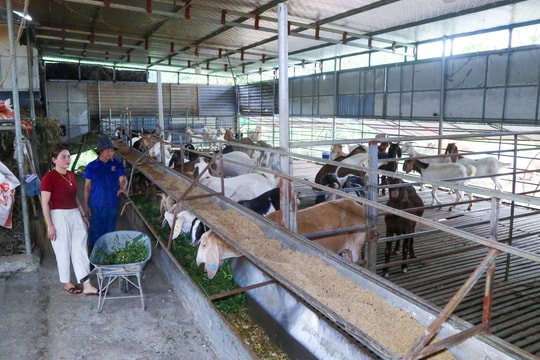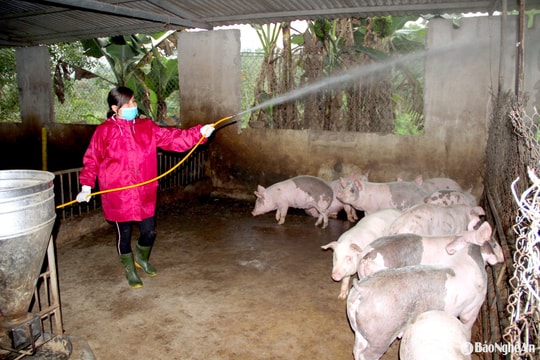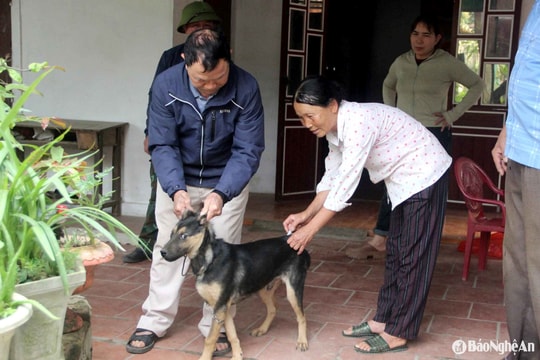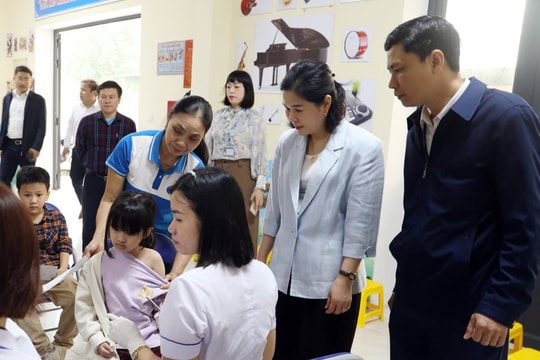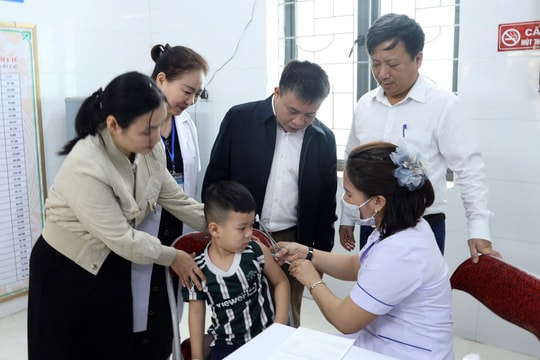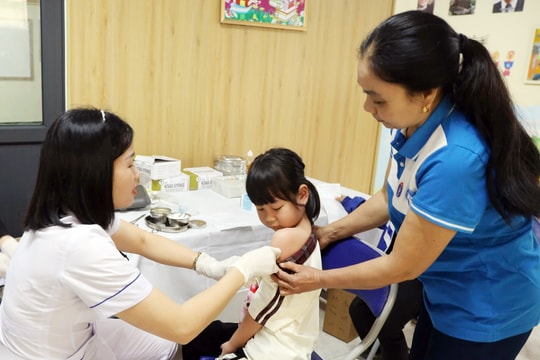Vaccination in livestock farming: "Buying a buffalo, regretting the nose"?
(Baonghean) - Livestock farms are places where disease outbreaks are likely to occur, so many farms have proactively coordinated with the District Veterinary Station to vaccinate their livestock. However, many farms also vaccinate themselves, making it difficult to control and prevent livestock diseases on farms.
Do Luong district currently has 34 livestock farms, including nearly 10 large pig farms. In the district, before 2014, there were a number of FMD and blue ear outbreaks in buffalo, cows, and pigs, including pig farms that also had outbreaks, causing great economic losses to farm owners.
However, the District Veterinary Station cannot grasp how the spring disease prevention work is going on at the farms. The reason is that the farms do not coordinate with the professional agency, the District Veterinary Station.
According to Mr. Vo Dinh Khoa - Head of the Veterinary Station of Do Luong district, most pig farm owners in the district vaccinate their pigs themselves. They do not declare when they introduce their pigs to the herd or what vaccines they inject to the professional agency. When an unfortunate disease outbreak occurs in the herd, they only declare it, which is inappropriate.
Therefore, every year the State organizes spring and autumn vaccinations, and the Veterinary Station coordinates with localities to organize vaccinations on small-scale pig herds raised in residential areas.
Accordingly, this spring crop, the People's Committee of Do Luong district assigned the target for localities to vaccinate 80% of the buffalo, cow and pig herds. Do Luong currently has 32,650 buffalo, cows and 30,950 pigs. The vaccination period for livestock this spring crop starts from March 20 and ends on April 15. The district Veterinary Station has received enough vaccines, which are currently being stored in the warehouse. From March 20, localities will begin receiving vaccines to vaccinate livestock.
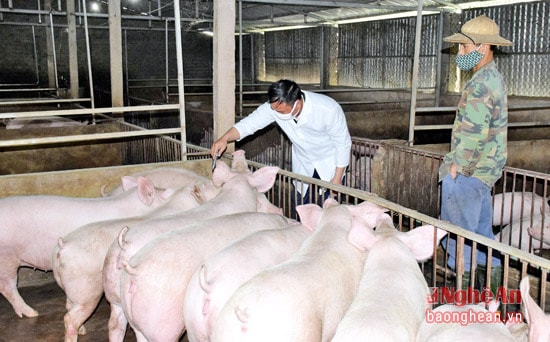 |
| Despite the large investment, not all farms actively cooperate with veterinary staff to protect livestock. In the photo is a farm that, thanks to good coordination with veterinary staff of Tan Ky district, has avoided septicemia and swine fever. |
For large livestock farms, proactive disease prevention is of utmost importance, because the most frightening thing for them is an epidemic. Therefore, disease prevention work on farms has very strict regulations whenever strangers and vehicles from outside enter or exit.
However, not all farm owners understand about vaccines as well as vaccine preservation. At the end of 2015, we went with veterinary staff of Quynh Luu district to Minh Nang's pig breeding farm in Quynh Bang commune.
By chance, we met the pig farm owner who had just bought a vaccine from the South and was preparing to vaccinate his pigs. Through inspection by the district veterinary officer, it was found that the vaccine was not properly preserved during transportation, and the farm owner did not know much about the origin of the vaccine. This shows that coordination between the farm owner and the veterinary authorities in disease prevention is necessary.
Xuan Hoang
| RELATED NEWS |
|---|

